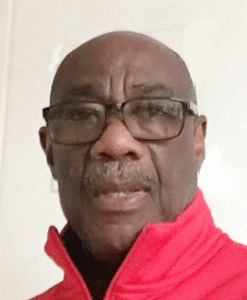
By Carlton Joseph
I would like to acknowledge the 100th anniversary of the Shouter/Spiritual Baptist religion in Trinidad & Tobago. The Baptist faith was brought to Trinidad by the Merikins, former American slaves who were recruited by the British to fight, as the Corps of Colonial Marines, against the Americans during the war of 1812. After the end of the war, these ex-slaves were settled in Trinidad, to the east of the Mission of Savannah Grande in six villages, since then called the Company Villages. These American settlers brought with them the Baptist faith of the Second Great Awakening combined with, in the case of those from Georgia, the Gullah culture.
These “dissenters” refused to recognize the supremacy of the Anglican Church, and combined different beliefs, and blended the practices of various schools of thought to create a religion that combined elements of traditional African religion with Christianity. The result was the creation of one of the few indigenous religions in the country. The activities of the Spiritual Baptists in Trinidad and Tobago were banned in 1917 by the Shouter Prohibition Ordinance, which was eventually repealed in 1951. The late opposition parliamentarian Ashford Sininan moved to repeal the ordinance under the PNM government and was successful. Today Spiritual Baptists can practice their religion freely. The United National Congress granted them a National Holiday and also gave them land on which to establish their headquarters.
Despite the pressures of the colonial powers to suppress this religion, they have had an extra ordinary impact on the politics and culture of the country. The earliest political influence could be attributed to Tubal Uriah ‘Buzz’ Butler, a devoted Baptist and controversial figure. Butler emerged as a labor leader whose public meetings were reminiscent of a Baptist prayer meeting. His prominence gave the religion some legitimacy and attitudes towards the Baptists gradually began to change.
However, this did not prevent the colonial powers from jailing him for his political and religious beliefs.
On the cultural front the Spiritual Baptist has had significant impact. It’s earliest impact, which I can recall, was from Blue Boy’s calypso presentation of “Soca Baptist”. This selection incorporated Baptist rhythms and identified it as the rhythm of Soca. “Listening to a prayer meeting, Baptiste people preaching, with a leader in front have people shaking, so a tell mih partner let we get closer, because ah tell myself ah hearing Soca.” This is part of the first verse and the rhythm was so infectious and culturally Trinbagonians that the entire population was moved and the calypso was the road march that year.
In a conversation with Sparrow concerning this calypso he intimated to me that while he was preparing his album for that year someone had come to him and told him that this new artist from south had this tune “Soca Baptiste” that he felt would be the road march. He said that when he heard the calypso and the rhythms he knew his presentation for road march could not compete. Sparrow also explained that, although he is not a spiritual Baptist, the Baptist influenced him before he started singing calypso. He indicated that his memories of their meetings were “Feel good memories.” He also said that the guttural sounds of “Congo Man” and many of his rhythms could be attributed to his early exposure to the religion.
Ella Andall album, Orisha Songs devotes 10 songs celebrating Orisha. David Rudder, Bahia Girl captures the rhythm of the Baptists and won him a Road March title. Tambu “ The Journey incorporates the Baptist rhythms with a serious message to his people: “Do not give up, You are here to survive, Never look back look ahead, Never say die till yuh dead.” Calypso Rose devotes an entire album – Gospel Songs – to the Spiritual Baptists. On this album she not only uses the rythms but also utilizes some of the Baptist gospel songs.
My earliest experience, at seven years of age, with the “Shango” or “Orisha”Spiritual Baptists was in Cobeau Town, Trinidad. Mother Julia was the spiritual leader at 21 Charles Street, Port of Spain. Her most illustrious member was calypsonian Lord Pretender. His compositions, Human Race, and Illegitimate Children, were influenced by his being a devotee to the Shango religion and their teachings.
In the 1990’s I was fortunate to have a professional relationship with John Hackshaw, an authority on the Spiritual Baptists. John took me to many Spiritual Baptists congregations all over Trinidad. I was impressed with their openness and genuine welcome but most impressive was their approach to having visitors to their congregations. They welcomed me and asked me to address the congregation, since my presence in their midst meant that I must have purpose or message to bring to them. This gave them an opportunity to learn more about me from me rather than second- hand knowledge from John who introduced me to the congregation. This experience was very exhilarating, because it gave me an immediate bonding with the members, rewarding because it gave me an opportunity to extemporaneously introduce myself, and share my experience and purpose for my visit, and revealing because it helped me to understand myself and my objectives more clearly.
Finally, I want to wish the Spiritual Baptists success in all their endeavors, and hope that the religion continues to grow and, like the other major religions, become an educational, political and economic force in Trinbago and the rest of the Caribbean.
( Trinidad-born Carlton Joseph is a close observer of political developments in the United States.He recently visited Trinidad.)


